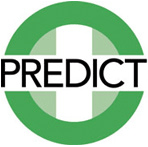Congratulations to the following PREDICT authors:
Franklin D, Babl FE, George S, Oakley E, Borland ML, Neutze J, Acworth J, Craig S, Jones M, Gannon B, Shellshear D, McCay H, Wallace A, Hoeppner T, Wildman M, Mattes J, Pham TMT, Miller L, Williams A, O’Brien S, Lawrence S, Bonisch M, Gibbons K, Moloney S, Waugh J, Hobbins S, Grew S, Fahy R, Dalziel SR, Schibler A. Effect of Early High-Flow Nasal Oxygen vs Standard Oxygen Therapy on Length of Hospital Stay in Hospitalized Children With Acute Hypoxemic Respiratory Failure: The PARIS-2 Randomized Clinical Trial. JAMA. 2023 Jan 17;329(3):224-234. doi: 10.1001/jama.2022.21805. PMID: 36648469 Clinical Trial.
Franklin D, Babl FE, Neutze J, Craig S, Oakley E, Furyk J, Frampton CM, Hasan N, Pham TM, Miller L, Fraser JF, Dalziel SR, Schibler A. Predictors of intensive care admission in hypoxemic bronchiolitis infants Secondary Analysis of a Randomized Trial. J Pediatr. 2022 Dec 14:S0022-3476(22)01122-2. doi: 10.1016/j.jpeds.2022.12.006. Epub ahead of print. PMID: 36528052.
Gray C, Xu Y, Babl FE, Dalziel SR, Powell CVE, Chong S, Roland D, Lyttle MD, Fernandes RM, Benito J, Johnson M, Yock-Corrales A, Santhanam I, Schuh S, Cheema B, Couper J, Craig S, On behalf of the Pediatric Emergency Research Network (PERN). International perspective on research priorities and outcome measures of importance in the care of children with acute exacerbations of asthma: a qualitative interview study. BMJ Open Resp Res. 2023;10:e001502. doi:10.1136/bmjresp-2022-001502.


